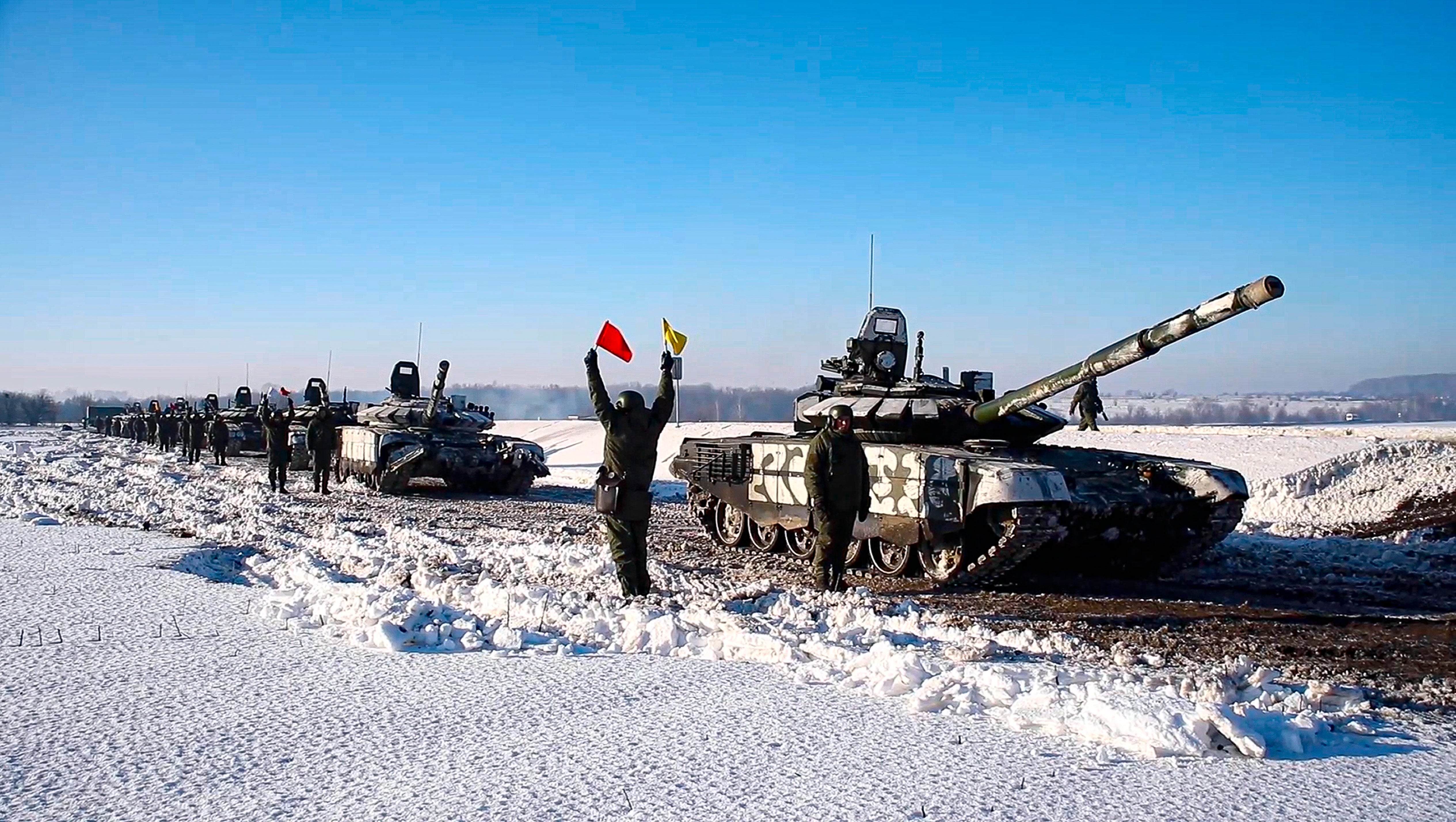‘Wars rarely start on a Wednesday’: Russia says it has no plans to attack Ukraine in the coming month
Moscow’s ambassador to the EU rejected reports that Russia was set to invade Ukraine today
Your support helps us to tell the story
From reproductive rights to climate change to Big Tech, The Independent is on the ground when the story is developing. Whether it's investigating the financials of Elon Musk's pro-Trump PAC or producing our latest documentary, 'The A Word', which shines a light on the American women fighting for reproductive rights, we know how important it is to parse out the facts from the messaging.
At such a critical moment in US history, we need reporters on the ground. Your donation allows us to keep sending journalists to speak to both sides of the story.
The Independent is trusted by Americans across the entire political spectrum. And unlike many other quality news outlets, we choose not to lock Americans out of our reporting and analysis with paywalls. We believe quality journalism should be available to everyone, paid for by those who can afford it.
Your support makes all the difference.Russia’s ambassador to the European Union has denied suggestions that his country is about plans to attack Ukraine, stating that wars in Europe “rarely start on a Wednesday” in response to reports that an invasion could take place today.
The New York Times had cited a US intelligence source saying that Moscow was planning an attack for 16 February - a claim that senior US officials have refused to confirm while maintaining that an offensive could be imminent.
When Russia’s envoy to EU, Vladimir Chizhov, was asked about the report, he told German newspaper Die Welt: “As far as Russia is concerned, I can assure you that there will be no attack this Wednesday.
“There will be no escalation in the coming week either, or in the week after that, or in the coming month.
“Wars in Europe rarely start on a Wednesday.”
Both the First and Second World Wars began on a Sunday and a Friday, respectively, while the 2014 Ukraine crisis with Russia began on 20 February which was a Thursday.
On the possibility of Russia invading Ukraine on Wednesday, UK defence secretary Ben Wallace said: “I've never talked about a date because in all the intelligence I've seen dates are not the issue, the issue here is the significant amount of forces,” he told Sky News.
Russia recently announced it had begun withdrawing troops from Ukraine’s border after the completion of military drills there, with the defence ministry sharing video purporting to show columns of military equipment and forces leaving the area.
The southern military districts are reportedly returning to their base from an exercise in Crimea, reported independent Russian news agency Interfax, citing the Kremlin defence ministry in a statement.
Belarusian foreign minister Vladimir Makei on Wednesday said no Russian soldiers or military equipment would remain in Belarus after joint military drills, a show of force that has raised Western fears Russia may be poised to invade Ukraine.
Moscow has repeatedly denied planning any incursion on its neighbour, and said its troops would leave Belarusian territory, which borders Ukraine, once drills are over.
However, 60 per cent of Russian land combat remains on the Ukrainian border along with significant naval power at sea, according to Mr Wallace, who said that an invasion is still possible with Ukraine “fairly surrounded” by a “fairly large force.”

This was echoed by Nato’s general secretary Jens Stoltenberg, who spoke on Wednesday before a meeting of the alliance’s defence ministers in Brussels.
“We have heard the signs from Moscow about readiness to continue diplomatic efforts,” Mr Stoltenberg told reporters.
“But so far we have not seen any de-escalation on the ground. On the contrary, it appears that Russia continues to military build-up.”
The Kremlin must choose between war and diplomacy amid a military build-up on Ukraine's borders, European Union Council head Charles Michel said on Wednesday, urging Russia to demonstrate its will to de-escalation by actions rather than words.
“In the last two days, Russia has signaled that it may be open to diplomacy, and we urge Russia to take concrete and tangible steps towards de-escalation because this is the condition for sincere political dialogue,” Mr Michel, who heads the EU Council grouping the bloc's members, told European lawmakers.
“The choice today is a choice between war and tragic sacrifices that would go along with that war or the courage of a political engagement, the courage of a diplomatic negotiation”, he added.
Late on Tuesday, Joe Biden said the US and its allies would “continue the diplomacy” with Russia but warned a renewed invasion of Ukraine is “still very much a possibility”.




Join our commenting forum
Join thought-provoking conversations, follow other Independent readers and see their replies
Comments